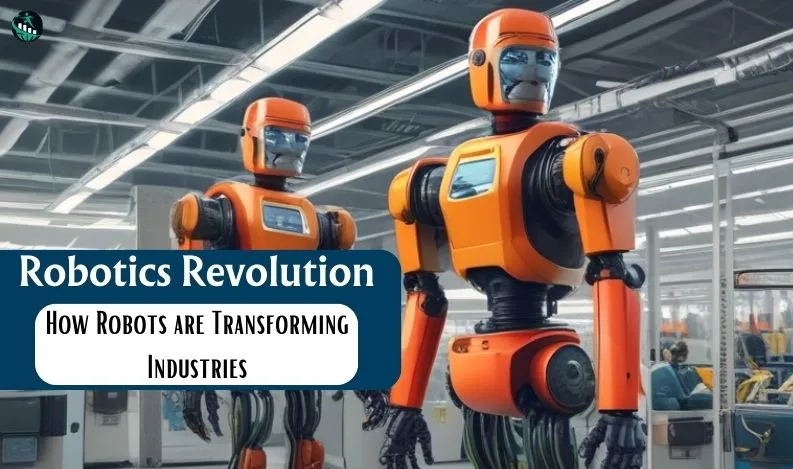
Robotics Revolution: How Robots are Transforming Industries
The dawn of the 21st century has ushered in an era where robotics, once a staple of science fiction, has become an integral part of our reality. The robotics revolution, marked by rapid advancements in technology and artificial intelligence (AI), is transforming industries in unprecedented ways. From manufacturing to healthcare, agriculture to customer service, robots are making processes more efficient, enhancing productivity, and even venturing into realms previously believed to be the exclusive domain of humans. This blog delves into the transformative impact of robotics across various sectors, highlighting how this technological marvel is reshaping the industrial landscape.
Manufacturing: The Automation Frontier
The manufacturing sector, historically the first to adopt robotics, continues to lead the charge in innovation. Robots in factories are not a new phenomenon, but their capabilities are expanding. Today’s robots are more autonomous, flexible, and capable of performing complex tasks with precision. They work alongside humans to enhance productivity while reducing the risk of injury in hazardous environments. Automation has also led to significant cost savings, with robots efficiently handling repetitive tasks, allowing human workers to focus on more strategic, creative, and problem-solving activities.
Healthcare: Precision and Personalization
In healthcare, robotics is revolutionizing surgeries, patient care, and rehabilitation. Robotic surgery, for instance, offers unprecedented precision, leading to minimally invasive procedures, reduced recovery times, and improved outcomes. Robots are also on the frontline of patient care, assisting in routine tasks, delivering medications, and even providing companionship to the elderly. Rehabilitation robots support patients recovering from strokes and injuries, providing therapies that adapt to the patient's progress.
Agriculture: The Next Green Revolution
Agriculture is experiencing its own green revolution through robotics. Autonomous tractors, drones, and robotic harvesters are becoming increasingly common, performing tasks ranging from planting seeds to monitoring crop health and harvesting. These technologies enable precision agriculture, where resources like water and fertilizers are applied optimally based on the needs of specific plants, significantly reducing waste and environmental impact. Robotics in agriculture promises to increase efficiency and yield while addressing the labor challenges faced by the industry.
Retail and Customer Service: Enhancing the Consumer Experience
Robots are transforming the retail industry by streamlining operations and enhancing the customer experience. In warehouses, robots expedite the picking and packing process, improving the efficiency of inventory management and order fulfillment. In brick-and-mortar stores, robots assist customers, manage stock, and even clean. Furthermore, chatbots and AI-driven robots are revolutionizing customer service by providing personalized assistance and support around the clock, significantly improving customer satisfaction.
Logistics and Transportation: The Path to Autonomy
The logistics and transportation sector is on the cusp of a major transformation, thanks to robotics and AI. Autonomous vehicles, from drones delivering packages to self-driving trucks transporting goods, are set to redefine logistics, offering faster and more reliable delivery services. These technologies also hold the promise of reducing accidents, lowering emissions, and optimizing traffic flow, contributing to safer and more sustainable transportation systems.
Environmental Management and Conservation
Robotics plays a crucial role in environmental management and conservation efforts. Robots are deployed to monitor pollution levels, manage waste, and even participate in cleanup efforts in hard-to-reach areas like the ocean floor. In conservation, drones and robotic sensors monitor wildlife and ecosystems, providing valuable data that supports the protection of endangered species and habitats. This robotic intervention is vital in the fight against climate change and environmental degradation.
Conclusion: Navigating the Robotics Revolution
The robotics revolution is here, and its impact is both profound and far-reaching. As robots become more integrated into various industries, they bring with them the promise of increased efficiency, safety, and sustainability. However, this transformation also presents challenges, including the need for workforce reskilling and ethical considerations around automation and employment. To navigate this revolution successfully, industries must embrace innovation while also addressing these challenges, ensuring that the robotics revolution benefits society as a whole. The future of robotics is not just about the technology itself but how we choose to integrate it into our world, enhancing both our capabilities and our quality of life.
Also Read:-



Recent Comments: